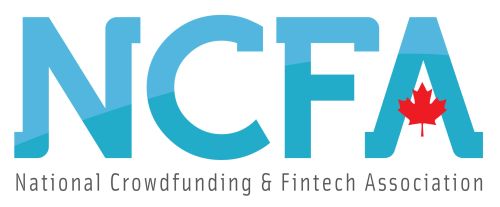Trust Fallacy: 75% of Payment Fraud in Crypto is Carried Out by KYC-verified Accounts
Crowdfund Insider | | Nov 28, 2022
 There’s no doubt in the minds of financial organizations and anti-laundering regulators that Know Your Customer (KYC) verified accounts prevent fraudulent activity– and that’s exactly the problem.
There’s no doubt in the minds of financial organizations and anti-laundering regulators that Know Your Customer (KYC) verified accounts prevent fraudulent activity– and that’s exactly the problem.
- Then: In the early 1990s, governments around the globe had a growing concern about preventing the increasingly connected banking system from harboring international transfers of illicit funds. To combat this, they introduced KYC verification– a straightforward method of ensuring that the person a banker was speaking with was who they claimed to be. In practice, new banking customers had to present various documents, set forth by their local regulatory body, to open an account in their own name. In addition, it made it difficult for fraudsters using forged documentation to physically go from bank to bank.
See: Equifax Partners with Oasis Labs to Issue Anonymous KYC Credentials to DeFi and NFT Users
- Now – KYC verification in the digital era: In line with anti-money laundering (AML) frameworks, cryptocurrency-related organizations, such as marketplaces and trading platforms, are considered a money service business (MSB) by the US government. As such, MSBs are legally required to KYC any account that reaches a daily trading threshold. In the United States, this limit is currently $10,000 per month and above.
- BUT…Payment fraud and money laundering are not the same, and preventing crime by treating them as such is a fool’s errand. the data points to something that many in anti-fraud departments already know– KYC verification no longer serves as an anti-fraud measure.
- How fraud works: A legal resident of a foreign country can open a KYC-verified account by presenting legitimate government-issued documents, then selling their login information on the Dark Web. One person can open multiple accounts per day without ever needing to leave the comfort of their own home. These fraudsters play off two key factors:
- The first is the ease of opening accounts online instead of physically traveling to bank branches makes this illegal act scaleable. Not only do they never need to ever meet a banking representative face to face, but they also don’t even need to be in the same country.
- It is cost-effective, and they can spoof an IP address as an alibi. If they are ever questioned, they can say it wasn’t them and their information was stolen. While their account may be automatically closed, their name remains clean.
- 75% of payment fraud in crypto is carried out by KYC-verified accounts.
See: Know Your Customer – and your Obligations – in the age of Real-Time Rails and Open Banking
- Solution: machine learning technology allows organizations of all sizes to implement AI-driven systems that can identify fraudsters immediately, saving businesses money and making it annoying for them to return. By creating a space that is unwelcome for fraudsters, companies can avoid chargebacks and boost approval rates to 98%, all while reducing costs, operating expenses, and ensuring a more welcoming customer experience for those who mean no harm.
Continue to the full article –> here
 The National Crowdfunding & Fintech Association (NCFA Canada) is a financial innovation ecosystem that provides education, market intelligence, industry stewardship, networking and funding opportunities and services to thousands of community members and works closely with industry, government, partners and affiliates to create a vibrant and innovative fintech and funding industry in Canada. Decentralized and distributed, NCFA is engaged with global stakeholders and helps incubate projects and investment in fintech, alternative finance, crowdfunding, peer-to-peer finance, payments, digital assets and tokens, blockchain, cryptocurrency, regtech, and insurtech sectors. Join Canada’s Fintech & Funding Community today FREE! Or become a contributing member and get perks. For more information, please visit: www.ncfacanada.org
The National Crowdfunding & Fintech Association (NCFA Canada) is a financial innovation ecosystem that provides education, market intelligence, industry stewardship, networking and funding opportunities and services to thousands of community members and works closely with industry, government, partners and affiliates to create a vibrant and innovative fintech and funding industry in Canada. Decentralized and distributed, NCFA is engaged with global stakeholders and helps incubate projects and investment in fintech, alternative finance, crowdfunding, peer-to-peer finance, payments, digital assets and tokens, blockchain, cryptocurrency, regtech, and insurtech sectors. Join Canada’s Fintech & Funding Community today FREE! Or become a contributing member and get perks. For more information, please visit: www.ncfacanada.org
Related Posts
- SEO Powered Content & PR Distribution. Get Amplified Today.
- Platoblockchain. Web3 Metaverse Intelligence. Knowledge Amplified. Access Here.
- Source: https://ncfacanada.org/trust-fallacy-75-of-payment-fraud-in-crypto-is-carried-out-by-kyc-verified-accounts/



